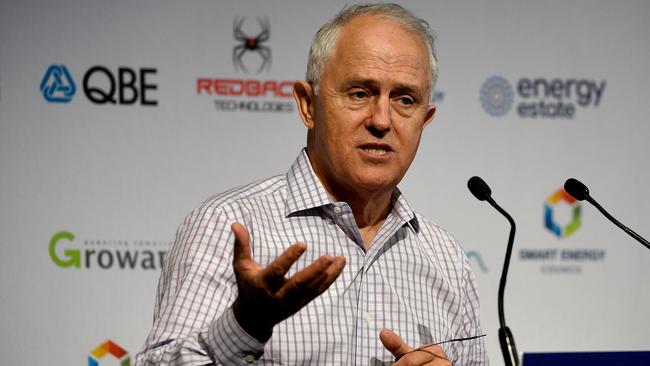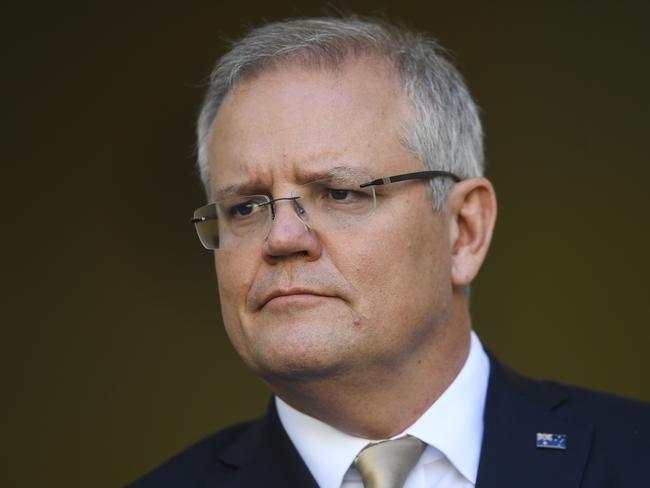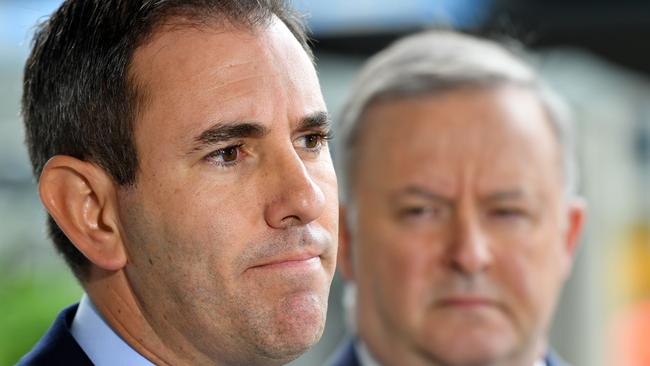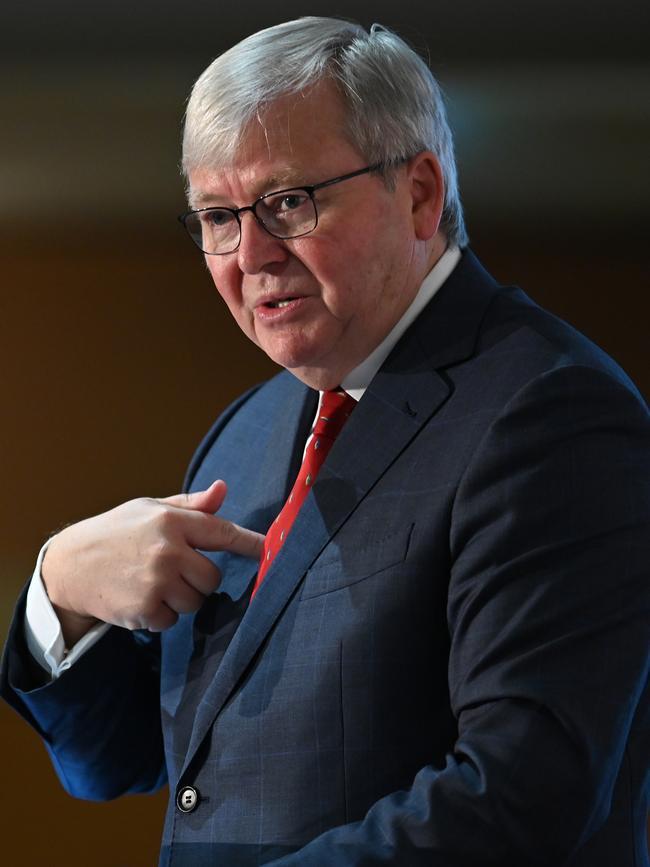Bug fallout will fester for many decades to come
We could have faced the coronavirus crisis with greater resilience if we’d heeded the warnings.
The medical offensive against COVID-19 is probably more sophisticated and widespread than anything we have seen outside of war but the economic and social disruption is of a similar order. “Events, dear boy, events” — the words often attributed to Harold Macmillan must echo in the minds of politicians the world over.
None of us could have predicted this specific disease at this exact time. But on another level this is exactly what we have all been worried about, and many have long warned of, at least in this country. It is the external economic shock for which we needed to be prepared, the asymmetric jolt that has long created the imperative to get our fiscal house in order.
In 2009 I was Malcolm Turnbull’s chief of staff for his year of living dangerously as opposition leader. As economies seized up at the height of the global financial crisis, experienced hands in Coalition ranks sagely complained that Kevin Rudd was the luckiest prime minister ever born.
Not only had the Labor neophyte inherited a budget bursting with surplus and bolstered by cash in the bank but he had the GFC to manage. The argument was that this would give Rudd a strong sense of purpose. He had the means to deal with it and he could initiate popular responses.
“He’ll be prime minister forever,” one senior Liberal groaned as Labor began talking about its profligate stimulus response, replete with $900 cheques and school halls.
The Coalition took its bravest and wisest decision under Turnbull’s leadership, rejecting the second $42bn stimulus while proposing a version half that size. Derided at the time, this decision created a platform of fiscal responsibility that led to political recovery, helping to project Turnbull’s internal nemesis, Tony Abbott, into power in 2013.
Rudd blew it. He overdid the stimulus and the budget with wasteful programs, and failed to follow through on what he claimed was his driving climate conviction, so his party turfed him.

Politics is never as good or as bad as it seems. At the time, I strongly supported Turnbull’s stimulus stand as he instinctively saw the flaws in Labor’s approach; he said Labor was trying to spend so much, so quickly, that there were bound to be disasters.
On climate, I had grave reservations about Turnbull’s compromise approach but if Rudd had accepted Turnbull’s bipartisan deals on a smaller stimulus package and revised emissions trading scheme, the nation, the budget, and Labor would have been spared much pain — the political losers would have been the Coalition.
Instead, we have seen more than a decade of fiscal disappointment that has left the economy exposed. When Scott Morrison and Josh Frydenberg shaped their stimulus this week, it started with debt and will conjure more.
Back in February 2009, voting against Rudd’s stimulus, Turnbull said: “The government is looking increasingly like a frightened soldier who fires off all his ammunition in panic in the first minutes of an engagement.” It was prescient. Since then, this has been the crucial worry about the nation’s budgetary position. Had we left ourselves with insufficient resilience in the budget, reducing the economy’s ability to withstand subsequent external shocks?
This has been a constant theme in this newspaper for the decade. After the Coalition’s 2015 budget, I wrote: “Those of us who worry about the economy being vulnerable to another external shock can criticise it.” About the same time, former ASX chairman Maurice Newman wrote: “Australia is much less prepared today for an external shock than in 2008.”

In September 2018, Menzies Research Centre executive director Nick Cater wrote that Rudd’s stimulus had “left Australia dangerously exposed to external economic shock”.
Abbott outlined the case in his agenda for the 2013 elections: “Australia is now more vulnerable to economic shocks due to excessive deficits and debt spending.”
In June 2015, Treasury Secretary John Fraser explained the risk of not tackling the debt burden: “The result would be increasing exposure to external shocks.”
In his budget reply of May 2009, Turnbull said: “We have a prime minister who is yet to make a tough decision, a prime minister who wants always to be Santa Claus, and we and our children and perhaps their children after them will be paying the bill for that for many years to come.”
The diagnosis from the Coalition has been consistent and correct. Their failure has been in fully delivering the prescription.
Senate intransigence, internal distractions and global conditions notwithstanding, they took longer to return to budget balance than they promised. Still, politics is always about alternatives and there can be no escaping how the Coalition’s less-than-stellar progress has far exceeded either what Labor achieved in office or what it promised from opposition.
Labor has promised higher taxation, higher spending and deeper deficits in a scenario that, in government, would have accentuated our current dilemma.
Jim Chalmers was chief of staff to Rudd’s treasurer Wayne Swan 11 years ago, helping to shovel $52 billion into largely ineffectual stimulus while locking in permanent spending increases. He is now the shadow treasurer and was part of the team who took $380bn in additional tax to the last election.
Yet Chalmers said this week that Australia “needs the Liberals to do a better job dealing with the challenges posed by the coronavirus than they have done managing the economy in recent years”.

In the lead-up to this week’s stimulus announcement, Chalmers said he was worried the Coalition’s response might not be “big enough” or “quick enough” or that it might be “too little, too late”. I am not making this up.
Rudd took to social media from New York, defending his stimulus package from more than a decade ago. He said if it was any smaller, the country would have entered recession. This ignores analysis that says Chinese demand, the devaluation of our dollar, and monetary policy did the heavy lifting.
Tony Makin, professor of economics at Griffith University, has written extensively on this since 2008 and spreads the blame widely enough to cover Labor’s spending and the Coalition’s subsequent indolence. “So two major fiscal policy mistakes were made,” wrote Makin. “There was the excessive stimulus itself focused on counter-productive government spending rather than tax reform and relief, which would have delivered long-term productivity improvement. And then there was a failure to quickly reverse the spending blowout as occurred under former treasurers Keating and Costello in similar circumstances.”

Whatever way you look at it, we have left ourselves exposed. And we have doubled down on our fiscal vulnerability by allowing our resources exports, as well as our tourism and education exports, to become overly reliant on one major trading partner. The Prime Minister and Treasurer, to be fair, have been aware of this fragility and have been working to counter it. They constructed a plausible surplus budget. But before that could be delivered, the external shock came; not a war, not a trade dispute, but a bug. And here we are.
The medical trauma is impossible to predict, but the expectation must be for widespread upheaval for months, with enormous pressure on our health system and a modest mortality rate, hitting mainly the elderly. The economic damage will come from all directions: reduced demand as travel and tourism halt and consumers hesitate; reduced output as workplaces are shut down; constricted supply as trading partners are stifled; and shattered confidence. We could have faced this with more resilience if we had heeded our own warnings by reducing spending, returning to surplus, cutting debt and boosting productivity.
Instead, Morrison and Frydenberg traded in our first surplus for more than a decade on a second-hand stimulus. And there is every chance it will do little except deepen the burden for future budgets.
Labor is unrepentant about its profligate past and sets up the government to fail should a recession eventuate. The level of political opportunism is sickening, but par for the course in this age of goldfish memories, polarised partisanship and gesture politics.




Nothing goes viral, so it turns out, like an actual virus. We discover that a microscopic parasite can do more damage, more quickly than we ever imagined, in a digitised and globalised world.